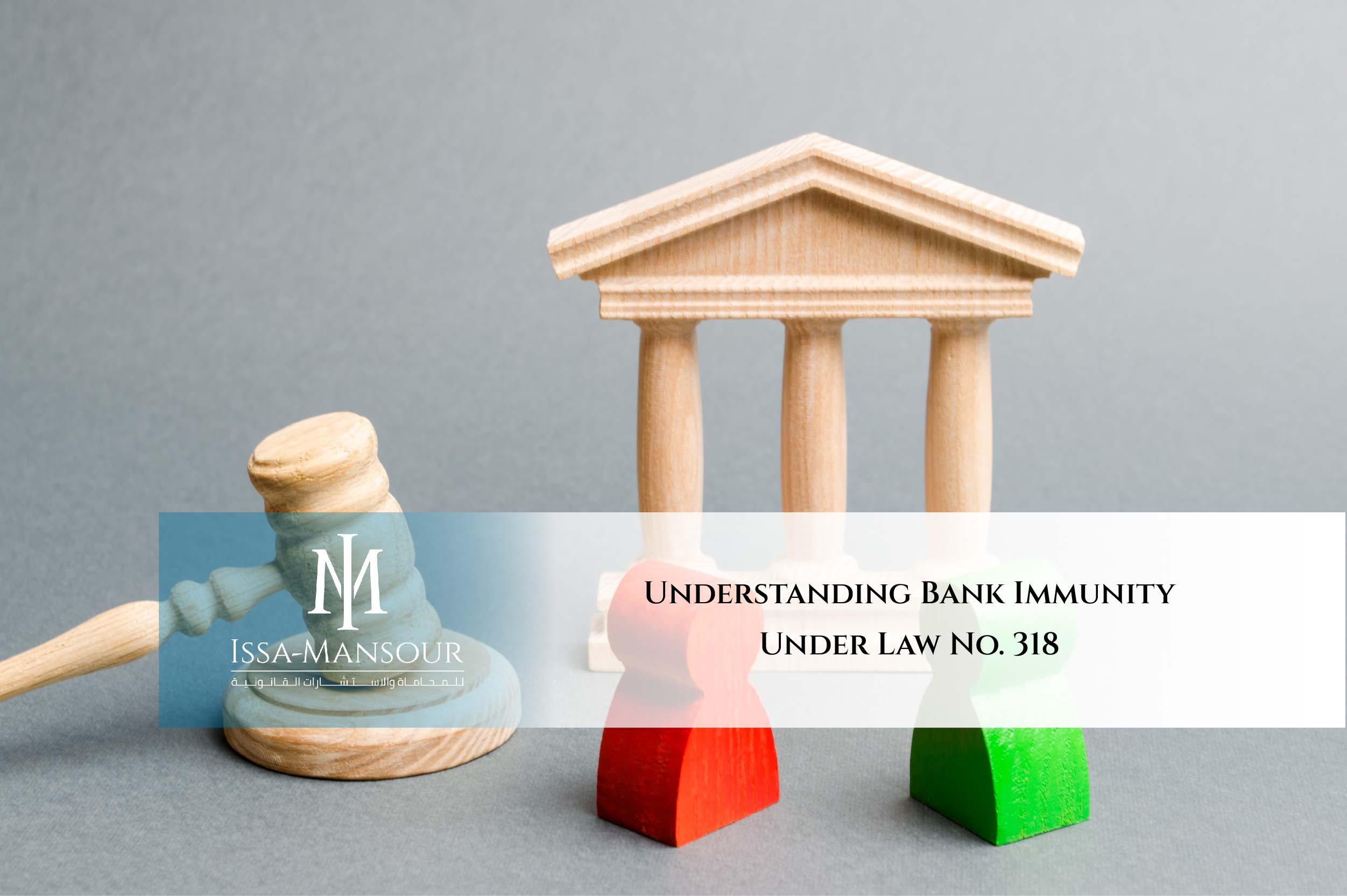Did you know that Lebanese Law No. 318, issued on April 20, 2001 (the Law on Combating Money Laundering Crimes), grants Lebanese banks, their management, and employees immunity from civil and criminal liability in the scope of their duties? This law is the foundation for Basic Circular No. 18, issued on May 18, 2001, by the Governor of the Central Bank of Lebanon. It’s commonly known as the framework for monitoring financial and banking operations to combat money laundering and the financing of terrorism.
According to Article 12 of Law No. 318:
“The Chairman, members of the Financial Investigation Authority, and its employees, or any persons delegated by the Authority, enjoy immunity within the scope of their work under this law. They cannot be sued or prosecuted for civil or criminal liability related to their duties, including those under the 1956 law on banking secrecy, except in cases where banking secrecy is unlawfully disclosed.”
The same legal protection extends to banks and their employees when they fulfill their obligations under Law No. 318 or the decisions of the Financial Investigation Authority. This immunity covers their reporting duties concerning suspicious activities that could be linked to money laundering or terrorism financing.
In essence, if a bank or its employees act within their legal obligations under this law, no civil or criminal case can be brought against them in connection with their duties. This includes situations where a bank reports suspicious transactions to the Authority, even if the client being reported feels harmed by the report. Article 12 ensures that lawsuits claiming damages for such actions are inadmissible.
The intention of this legal framework is clear: to empower financial institutions to actively participate in the global fight against money laundering and terrorism financing, without fear of legal repercussions for carrying out their mandated duties.

